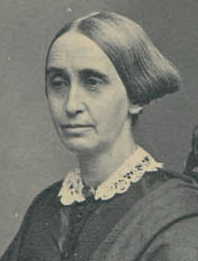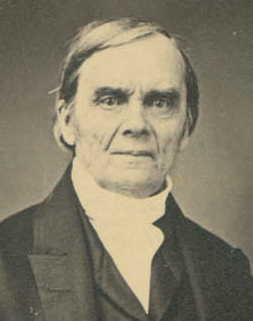Henry Grew facts for kids
Henry Grew (born 1781 – died August 8, 1862) was a Christian teacher and writer. He studied the Bible very closely. His studies led him to ideas that were different from what many churches believed at the time. For example, he did not believe in the Trinity (God as three persons). He also thought that the soul was not naturally immortal and that hell was not a place of endless burning.
Contents
Henry Grew's Life and Work
Henry Grew was born in Birmingham, England. When he was 13, he moved with his family to the United States. They first lived in Boston. Later, Grew lived in other cities like Providence, Pawtucket, Hartford, and Philadelphia. He went to Brown University.
Early Church Work
By age 23, Grew became a deacon at the First Baptist Church in Providence. Later, he became a pastor in Pawtucket. In 1810, he published his first writing about the Book of Matthew.
When he was 30, in 1811, he had been a pastor at the First Baptist Church in Hartford for four years. His connection with the church ended because his beliefs and practices were different from theirs.

For many years after that, Grew served as a pastor off and on. He often led smaller groups of people who shared his views.
Involvement in Social Causes
Early in his career, Grew was part of the Connecticut Bible Society. In the 1820s, he helped start the Hartford Female Seminary. This was a school for girls.
In the 1830s, Henry Grew was involved with peace societies in Hartford and Connecticut. He also joined the New England Anti-Slavery Society. He spoke out against slavery for this group.
Trip to the Anti-Slavery Convention
Grew was invited to the World Anti-Slavery Convention in London. It started on June 12, 1840. He left on a ship called the Roscoe on May 7, 1840. His daughter, Mary Grew, also traveled with him. Other delegates on the ship included James and Lucretia Mott.
During the trip, Henry Grew read from the Bible and preached on Sundays. After they arrived in England, Grew and Mary traveled to places like Liverpool and Birmingham. Mary wanted to see her father's birthplace.
Debates on Women's Rights
At the convention in London, there was a big discussion. Some people debated if women delegates should be allowed to participate and sit with the men. Henry Grew agreed with the British organizers. He spoke in favor of men having the right to exclude women, even though his own daughter was not allowed to fully participate.
In 1854, a similar debate happened in Philadelphia. Grew and Mary attended the fifth annual National Women's Rights Convention. Grew debated with Lucretia Mott. He argued that men should have authority.
Later Life and Death
Henry Grew continued to preach for the rest of his life. He worked with a small group of people who shared his religious beliefs. His writings were collected and later influenced other religious leaders.
He passed away in Philadelphia on August 8, 1862, after being sick. He was 80 years old.
Henry Grew's Influence
Henry Grew's writings had an impact on George Storrs. Later, they also influenced Charles Taze Russell. Both Henry Grew and George Storrs are mentioned as important Bible students. They were noted in the October 15, 2000, issue of The Watchtower magazine. This magazine is published by the Watch Tower Bible and Tract Society of Jehovah's Witnesses.
Grew's Published Works
Henry Grew wrote many religious books and essays. Some of his works include:
- Christian Loyalty: A Sermon on Matthew XXII:21 (1810)
- An Examination of the Divine Testimony Concerning the Character of the Son of God (1824)
- A Tribute to the Memory of the Apostles, and an Exhibition of the First Christian Churches (1836)
- The Practices of the Early Christians Considered (1838)
- A Review of Phelps' Argument for the Perpetuity of the Sabbath (1844)
- The Intermediate State (1849)
- The Sabbath (1850)
- An Examination of the Divine Testimony on the Nature and Character of the Son of God (1855)
- An Appeal to Pious Trinitarians (1857)
- The Atonement (1859)
- Divine Dispensations, Past, Present and Future (1861)
In Popular Culture
- Grew's daughter, Mary, is a character in Ain Gordon's 2013 play If She Stood. This play was commissioned by the Painted Bride Art Center in Philadelphia.
 | George Robert Carruthers |
 | Patricia Bath |
 | Jan Ernst Matzeliger |
 | Alexander Miles |


